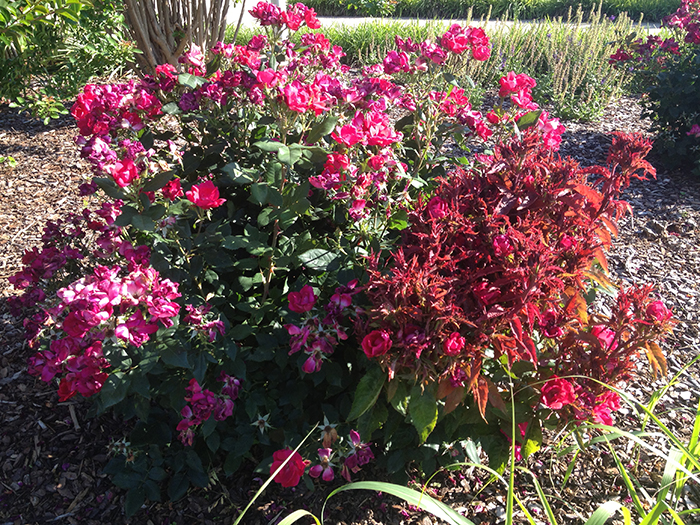There is a war raging in North America that leaves nothing but death and destruction in its wake. The worst part is, the battlefield could be in your own backyard.
It's the war on roses. The enemy is rose rosette disease, and it won't surrender until it has infected every rose bush in its path.
Patrick Di Bello, a student in the interdisciplinary cell and molecular biology graduate program, has spent the last two years studying the disease. Through his research, he hopes to arm rose lovers everywhere with the weapons needed to combat this hostile assailant.
Rose rosette disease has a crippling effect on roses, causing excessive thorniness, leaf malformation, reddening of emerging roots and the bunching together of shoots. The average rose bush survives only two or three years after infection.
Di Bello, with this assistance of his adviser Ioannis Tzanetakis, has made significant strides in learning more about the cause of the disease and how it is transmitted. The pair proved beyond doubt that the disease is caused by rose rosette virus, and the virus is transmitted by the eriophyid mite Phyllocoptes fructiphilus. Their study revealed virus carrying mites transmit the virus in under one hour, and roses begin showing symptoms of rose rosette disease within a month after infection.
"Many researchers had assumed that rose rosette virus causes the disease, but no one had ever done the work to show that was the case or that a mite was the transmitter," Di Bello said.
Now that Di Bello has established how the disease is making its attack, he is mounting an offensive to try to control its spread. He is working to determine if there are any resistant rose varieties already on the market. He is also trying to learn how the mites transmit the virus.
"If we can determine how the virus is vectored by the mite, then we can figure out how to treat plants to prevent the disease," he said.
Though there is currently no prevention or cure for the disease, Di Bello and Tzanetakis have developed a few management tips.
- Start with high-grade roses from quality nurseries.
- Completely remove plants infected with the virus.
- Use miticides to eliminate mites to slow the virus' spread.
Armed with these tips and the knowledge that Di Bello and Tzanetakis are devising methods to eradicate this deadly disease, gardeners across the continent can continue caring for their roses knowing a day is nearing when rose rosette virus will retreat and their roses can grow in peace.

A rose bush infected with rose rosette virus.
Topics
Contacts
Amanda Cantu, director of communications
Graduate School and International Education
4795755809,
